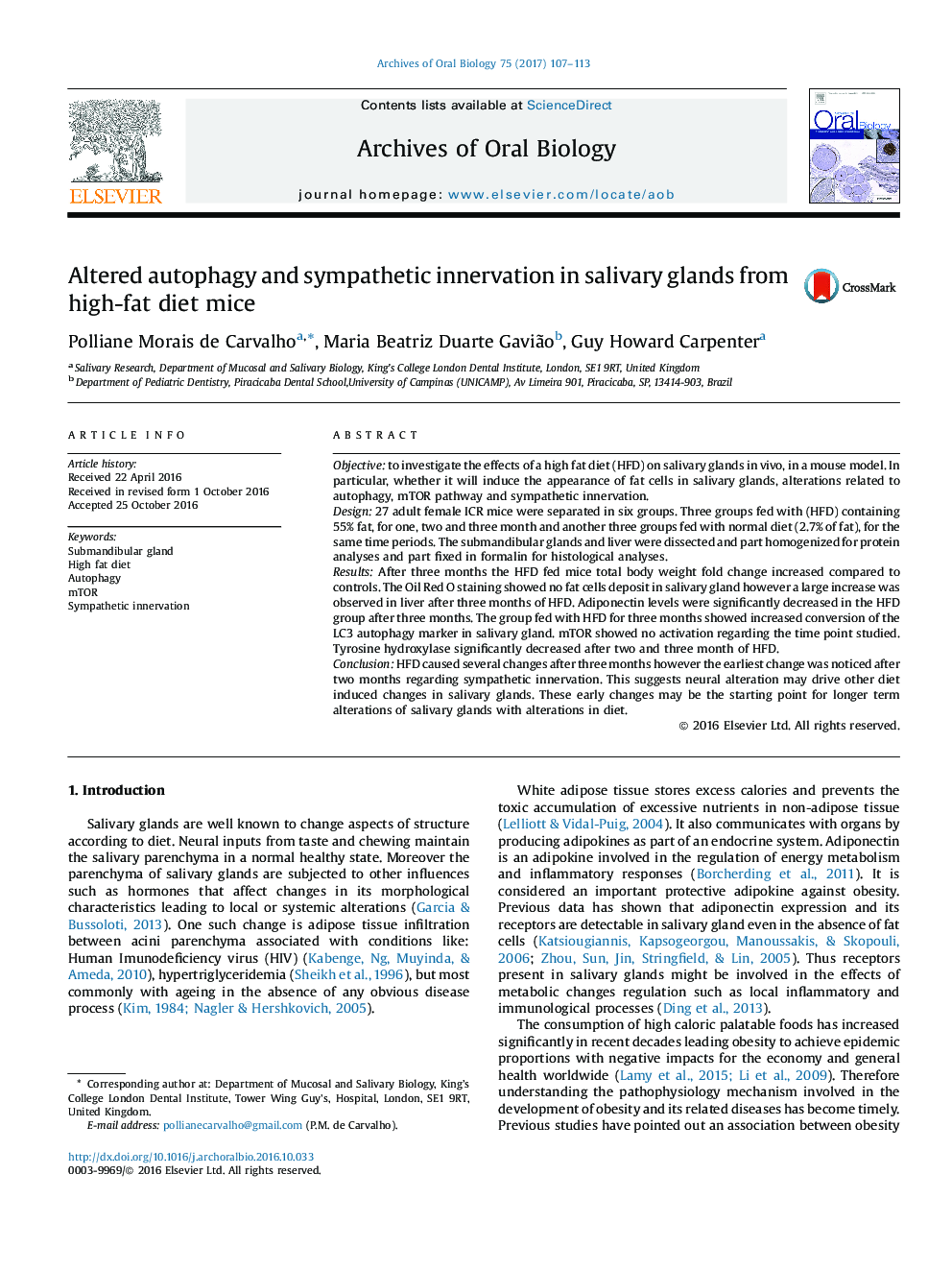| کد مقاله | کد نشریه | سال انتشار | مقاله انگلیسی | نسخه تمام متن |
|---|---|---|---|---|
| 5638107 | 1583278 | 2017 | 7 صفحه PDF | دانلود رایگان |
- Adiponectin levels decreased in the High Fat Diet group after three months.
- Autophagy increased after three months of High Fat Diet.
- mTOR showed no activation regarding the time point studied.
- Tyrosine hydroxylase decreased after two and three month of High Fat Diet.
Objectiveto investigate the effects of a high fat diet (HFD) on salivary glands in vivo, in a mouse model. In particular, whether it will induce the appearance of fat cells in salivary glands, alterations related to autophagy, mTOR pathway and sympathetic innervation.Design27 adult female ICR mice were separated in six groups. Three groups fed with (HFD) containing 55% fat, for one, two and three month and another three groups fed with normal diet (2.7% of fat), for the same time periods. The submandibular glands and liver were dissected and part homogenized for protein analyses and part fixed in formalin for histological analyses.ResultsAfter three months the HFD fed mice total body weight fold change increased compared to controls. The Oil Red O staining showed no fat cells deposit in salivary gland however a large increase was observed in liver after three months of HFD. Adiponectin levels were significantly decreased in the HFD group after three months. The group fed with HFD for three months showed increased conversion of the LC3 autophagy marker in salivary gland. mTOR showed no activation regarding the time point studied. Tyrosine hydroxylase significantly decreased after two and three month of HFD.ConclusionHFD caused several changes after three months however the earliest change was noticed after two months regarding sympathetic innervation. This suggests neural alteration may drive other diet induced changes in salivary glands. These early changes may be the starting point for longer term alterations of salivary glands with alterations in diet.
Journal: Archives of Oral Biology - Volume 75, March 2017, Pages 107-113
